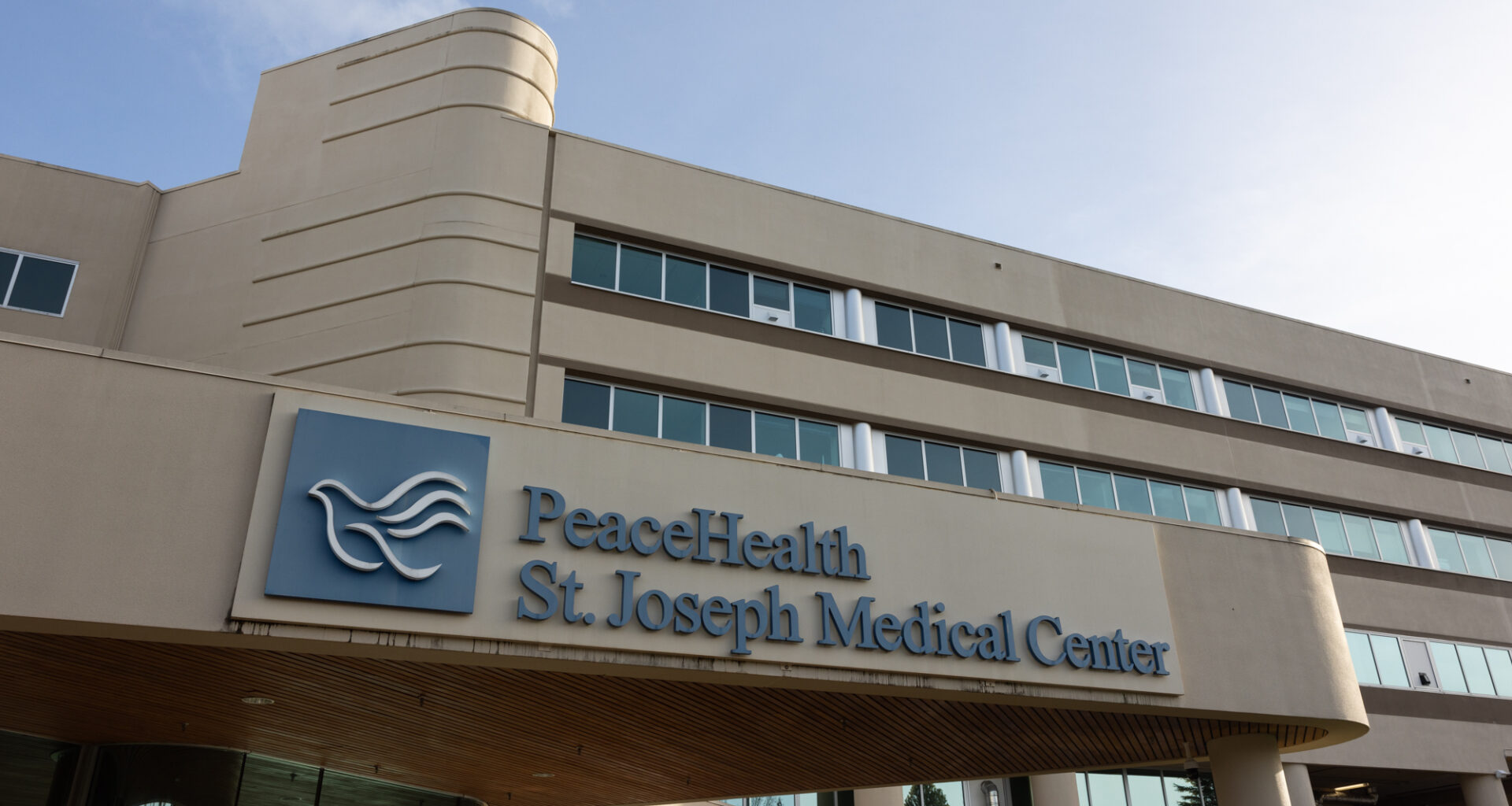The number of Whatcom County families financially burdened to the point of health complications is on the rise, according to the county’s lone hospital, PeaceHealth St. Joseph Medical Center.
Amid a local affordability crisis, nationwide cuts to health programs and slacking social safety nets, the hospital anticipates that it and other local nonprofits will see increasing demand in coming years.
These challenges will affect certain populations more intensely than others, Rachel Lucy, PeaceHealth’s director of community health, told Cascadia Daily News.
In the county, 38% of individuals don’t qualify for financial assistance because they earn less than the county’s cost of living but more than the federal poverty level, PeaceHealth found.
The number of Whatcom residents in this situation, the majority of whom reside in rural households, is steadily rising and has been for more than a decade.
Across the board, housing and food affordability are among the community’s leading health concerns, according to PeaceHealth’s 2025 Community Health Needs Assessment, an outlook for the next three years.
Persistent opioid overdoses and a lack of services for youth, including mental health, are also top health concerns, the hospital’s report found.
Waitlists for youth mental health care are a norm, PeaceHealth admits, with demand for the services in Whatcom County higher than pre-pandemic levels. Meanwhile, overdose deaths in Whatcom County are five times higher than pre-COVID-19 pandemic levels, reaching 306 overdoses between 2022 and 2024. As of the end of June, Whatcom County has seen 180 emergency department visits for opioid overdoses this year, according to Whatcom County Health and Community Services.
Demand for PeaceHealth’s services is also rising, with a near hospital-wide increase in services accessed in 2024 compared to 2021. During that time, PeaceHealth has been busy, churning more emergency department visits and turning profits.
Nearly 14,000 more people visited the hospital’s emergency department in 2024 than three years prior. Roughly 3,000 more surgeries and 6,000 more outpatient clinic visits occurred in 2024, a year in which St. Joseph earned $77.5 million on network-wide revenues of $3.63 billion.
PeaceHealth released the report before the Trump administration, on July 4, signed a budget law with sweeping cuts and changes to health programs such as Medicaid, or Apple Health in Washington. Most changes in health care, which Gov. Bob Ferguson estimates could cause hospitals to close and 250,000 Washingtonians to lose Medicaid, aren’t slated to take effect until after the 2026 midterm elections, placing the fallout within PeaceHealth’s three-year outlook into 2028, when the hospital hopes to open its new six-floor capacity-demanded addition.
“A lot changed with the federal administration, but even before the new administration came in, we saw concerning trends,” with things like food insecurity, Lucy told CDN. “We’re very concerned.”
Since January, visits to food banks across Whatcom County are down despite the need for their services remaining high. Food banks serving large immigrant communities, like in Sedro-Woolley, have seen a “massive drop-off” in visits, Lucy said.
The Bellingham Food Bank, the county’s largest, purchased more than $5 million worth of food to meet the demand in 2024. In 2019, it cost nearly $400,000 to meet demand.
Nearly 70% of students in school districts such as Mount Baker, Ferndale and Nooksack are eligible for free and reduced lunch. Countywide, nearly 50% of youth are eligible, despite fewer (12%) registrations for Basic Food benefits, Washington’s version of the federal Supplement Nutrition Assistance Program (SNAP) benefits program.
The food benefits program for people with low incomes is among the recipients of cuts in Trump’s budget bill, although it remains unknown when exactly SNAP will be altered. Nearly 22.3 million families nationwide will lose some or all of their SNAP benefits, according to the Urban Institute, a policy research organization.
To maintain tax exemption under the Affordable Care Act, nonprofit hospitals like PeaceHealth must, among other Internal Revenue Service requirements, conduct and publish a community health needs assessment every three years along with an implementation strategy.
The hospital will use the report’s findings to build and release the implementation plan at the end of summer, which will include insight into the hospital’s planned community investments.
Owen Racer is a Report for America corps member who covers health care and public health in Whatcom and Skagit counties. Reach him at owenracer@cascadiadaily.com; 360-922-3090 ext. 101. Learn more and donate at cascadiadaily.com/rfa.

